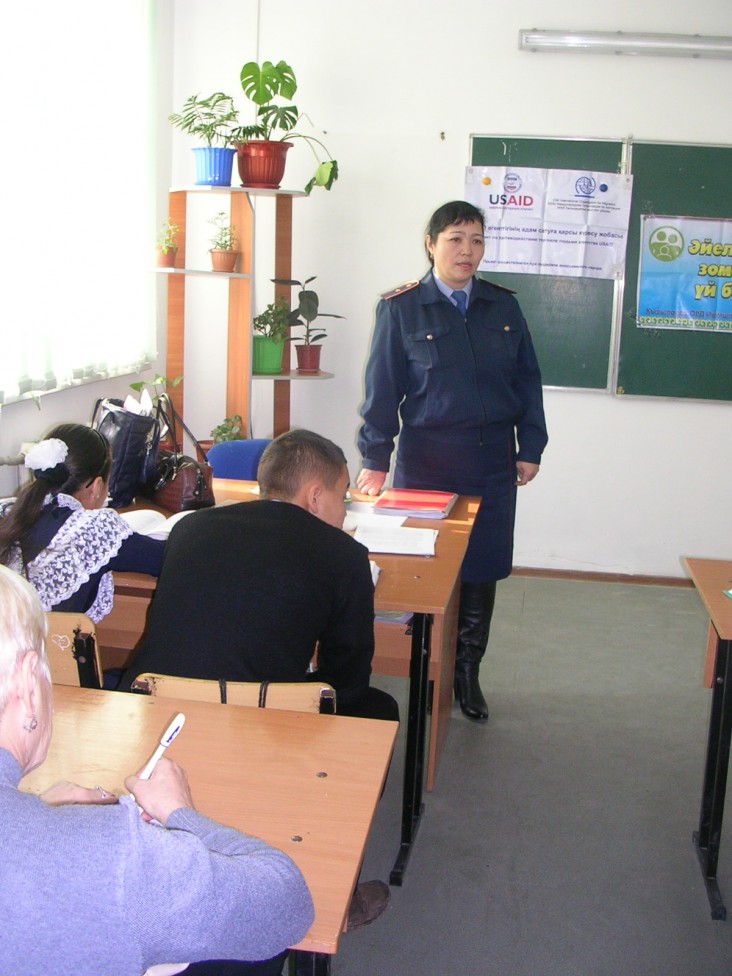
July 2014—For victims of trafficking, Kazakhstan serves as a destination, transit and source country. Kazakhstan remains attractive as a destination for citizens from less economically stable countries of Central Asia. For those being trafficked from Kazakhstan, the main destination countries are Russia, the United Arab Emirates and Turkey.
Because economic opportunities and relative prosperity are concentrated in large cities, in-country trafficking cases have increased in recent years as large numbers of rural dwellers have been attracted to more lucrative employment in the cities where they fall prey to labor and sexual trafficking.
“Beware of Human Trafficking; Let’s Stop Trafficking!” That’s the slogan of the International Organization for Migration and its NGO partners as they conduct information campaigns to raise public awareness about the issue of human trafficking, and also engage the public in the fight against trafficking. The project, which focuses on prevention and protection activities, is funded by USAID and implemented by IOM's NGO partner network in all five Central Asian countries—Kazakhstan, Kyrgyzstan, Uzbekistan, Turkmenistan and Tajikistan.
Sixteen partner NGOs in Kazakhstan lead educational campaigns targeting youth and engage other stakeholders from governmental agencies and media to ensure awareness.
Saltanat Syzdykova, head of the Women Private Entrepreneurs Community NGO in Kazakhstan, involves representatives of law enforcement and media to deliver trainings to youth. Journalists from the Chas Pik newspaper in Kyzylorda often participate in the events organized by the NGO and support counter-trafficking efforts in the region through articles about the subject. This approach enhances collaboration between governmental agencies and civil society to better deal with the challenge of human trafficking.
“Human trafficking is a violation of human rights. People are exploited at construction sites, agricultural fields, households, farms and factories,” said Syzdykova during a training session. “Sometimes people are forced into begging or prostitution. Be aware of suspicious job offers and do not use irregular migration schemes.”
Over the past three years, almost 2,000 training events were conducted by 16 NGO partners throughout the country and about 75,000 youth were reached through educational campaigns and informational materials.
Links
Follow @USAIDCtrAsia, on Facebook, on Flickr, on YouTube







Comment
Make a general inquiry or suggest an improvement.